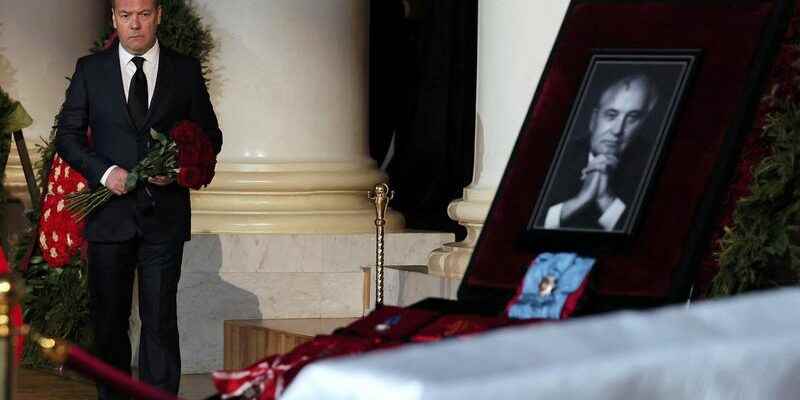MOSCOW (Reuters) – Thousands of Russians paid tribute on Saturday to Mikhal Gorbachev, who died aged 91 on Tuesday, with many hailing the Soviet Union’s last leader as a “man of peace”.
Vladimir Putin, who called the collapse of the Soviet Union the greatest geopolitical catastrophe of the 20th century, refused to organize a real state funeral for the man who led the USSR from 1985 until its break-up in 1991 and declared that his schedule did not allow him to attend the ceremonies.
A former KGB spy, the Russian president nevertheless went to the hospital where Mikhal Gorbachev died on Thursday for a personal tribute. The Kremlin stressed that the presence of the presidential guard at the funeral would provide an “element” of a state funeral.
Admired in the West for his reforms but contested in Russia for the economic chaos that followed the breakup of the USSR, Mikhal Gorbachev was to be buried in the Novodevichy cemetery in Moscow, alongside his wife Rassa who died in 1999.
Before his burial, his remains were displayed in the vast Hall of Columns of the House of Trade Unions, near the Kremlin, as at the funerals of other Soviet leaders before him, such as Lenin and Stalin.
Thousands of people filed past his coffin, above which had been raised the tricolor flag of Russia, in the presence of his daughter Irina, the latter’s two daughters and relatives, with music taken from the movie “Schindler’s List”.
Many Western heads of state and government would certainly have attended these funerals had it not been for the diplomatic crisis caused by Vladimir Putin’s decision to launch a “special military operation” in Ukraine in February.
Hungarian Prime Minister Viktor Orban, a former opponent of Soviet tutelage over his country, nevertheless went to Moscow, where he laid flowers at the foot of Mikhal Gorbachev’s coffin before meditating in front of his remains and greeting his family.
(With Gabrielle Ttrault-Farber and Kevin Liffey, French version Bertrand Boucey)
by Filipp Lebedev and Andrew Osborn
